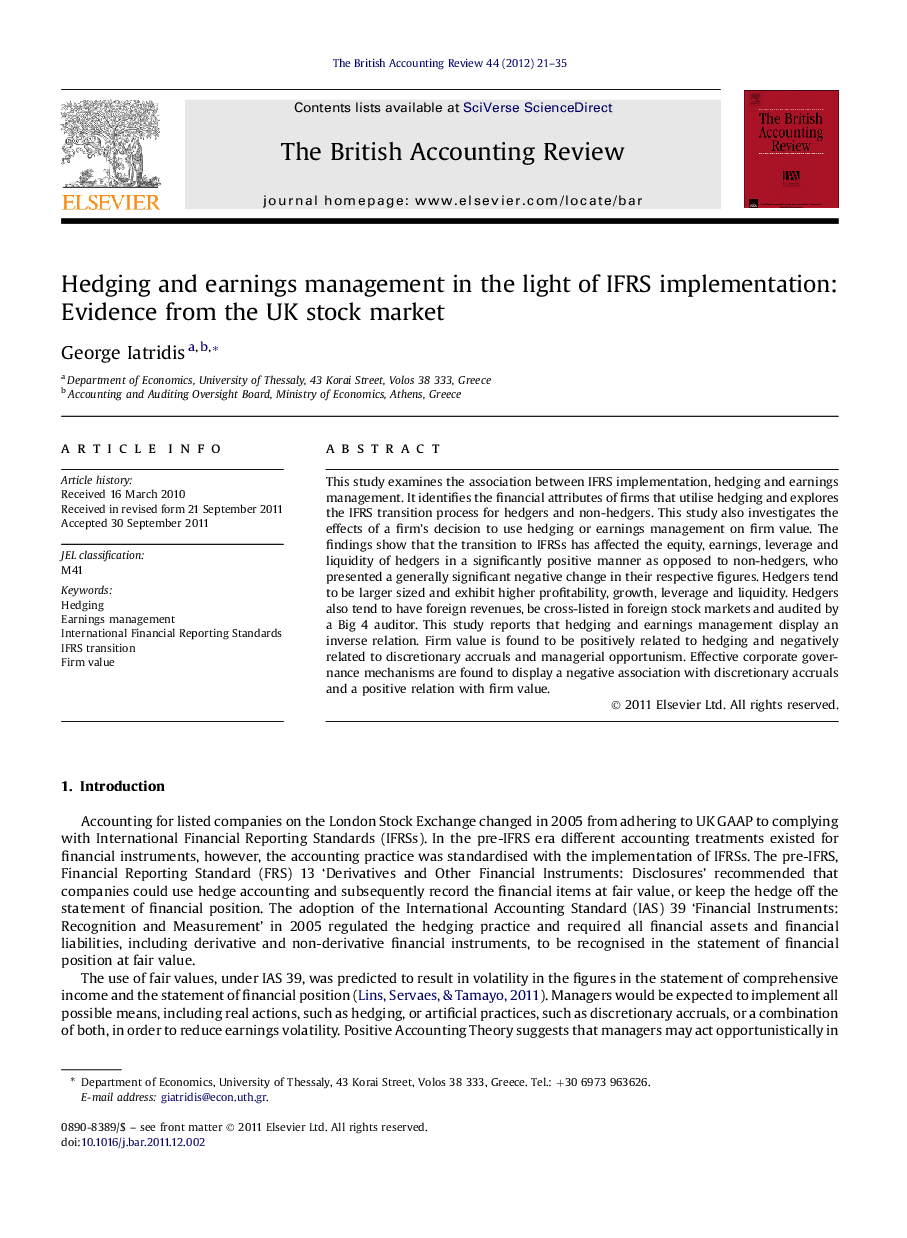| Article ID | Journal | Published Year | Pages | File Type |
|---|---|---|---|---|
| 1004137 | The British Accounting Review | 2012 | 15 Pages |
This study examines the association between IFRS implementation, hedging and earnings management. It identifies the financial attributes of firms that utilise hedging and explores the IFRS transition process for hedgers and non-hedgers. This study also investigates the effects of a firm’s decision to use hedging or earnings management on firm value. The findings show that the transition to IFRSs has affected the equity, earnings, leverage and liquidity of hedgers in a significantly positive manner as opposed to non-hedgers, who presented a generally significant negative change in their respective figures. Hedgers tend to be larger sized and exhibit higher profitability, growth, leverage and liquidity. Hedgers also tend to have foreign revenues, be cross-listed in foreign stock markets and audited by a Big 4 auditor. This study reports that hedging and earnings management display an inverse relation. Firm value is found to be positively related to hedging and negatively related to discretionary accruals and managerial opportunism. Effective corporate governance mechanisms are found to display a negative association with discretionary accruals and a positive relation with firm value.
